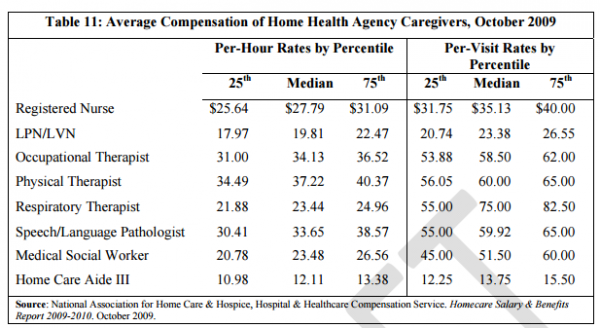The population of Tamil Nadu has greatly benefited, for example, from its splendidly run mid-day meal service in schools and from its comprehensive system of nutrition and healthcare of pre-school kids. The message that striking rewards can be reaped from severe efforts at institutingor even moving towardsuniversal health care is difficult to miss out on.
Maybe most notably, it suggests involving ladies in the shipment of health and education in a much larger way than is usual in the developing world. The concern can, however, be asked: how does universal health care ended up being budget-friendly in bad countries? Certainly, how has UHC been managed in those nations or states that have run versus the widespread and entrenched belief that a bad nation must initially grow rich prior to it is able to satisfy the costs of healthcare for all? The alleged sensible argument that if a nation is poor it can not offer UHC is, however, based upon crude and faulty financial reasoning (how to qualify for home health care).
A bad country may have less cash to invest in healthcare, however it also requires to invest less to supply the very same labour-intensive services (far less than what a richerand higher-wageeconomy would need to pay). Not to take into account the ramifications of big wage distinctions is a gross oversight that misshapes the discussion of the cost of labour-intensive activities such as healthcare and education in low-wage economies.

Provided the hugely unequal circulation of earnings in many economies, there can be major inefficiency along with unfairness in leaving the circulation of healthcare completely to individuals's respective abilities to purchase medical services. UHC can bring about not only higher equity, however also much bigger general health achievement for the nation, since the remedying of a lot of the most easily treatable illness and the avoidance of easily preventable conditions get left out under the out-of-pocket system, due to the fact that of the failure of the poor to pay for even really elementary healthcare and medical attention.
This is not to deny that treating inequality as much as possible is an important valuea topic on which I have edited lots of decades. Decrease of financial and social inequality also has important importance for excellent health. Definitive proof of this is supplied in the work of Michael Marmot, Richard Wilkinson and others on the "social factors of health", revealing that gross inequalities damage the health of the underdogs of society, both by weakening their lifestyles and by making them vulnerable to harmful behaviour patterns, such as smoking and excessive drinking.
Health care for all can be implemented with comparative ease, and it would be a pity to delay its accomplishment up until such time as it can be combined with the more complicated and difficult objective of eliminating all inequality. Third, numerous medical and health services are Alcohol Detox shared, instead of being specifically used by each individual separately.
Things about How Much Does Health Care Cost
Healthcare, therefore, has strong components of what in economics is called a "collective good," which generally is very inefficiently allocated by the pure market system, as has actually been extensively talked about by economists such as Paul Samuelson. Covering more people together Rehabilitation Center can sometimes cost less than covering a smaller sized number separately.
Universal coverage prevents their spread and cuts expenses through much better epidemiological care. This point, as used to specific regions, has been recognised for a long time. The conquest of epidemics has, in fact, been accomplished by not leaving anybody unattended in regions where the spread of infection is being dealt with.

Today, the pandemic of Ebola is triggering alarm even in parts of the world far from its place of origin in west Africa. For instance, the US has actually taken many pricey steps to avoid the spread of Ebola within its own borders. Had actually there been efficient UHC in the countries of origin of the disease, this problem could have been mitigated or even gotten rid of (how much does medicaid pay for home health care).
The estimation of the supreme financial expenses and advantages of health care can be a far more complicated procedure than the universality-deniers would have us think. In the absence of a reasonably well-organised system of public healthcare for all, lots of people are afflicted by overpriced and ineffective personal health care (what is the affordable health care act). As has actually been analysed by many economists, most notably Kenneth Arrow, there can not be an educated competitive market stability in the field of medical attention, due to the fact that of what economists call "asymmetric information".
Unlike in the market for numerous products, such as shirts or umbrellas, the buyer of medical treatment understands far less than what the seller the doctordoes, and this vitiates the efficiency of market competition. This uses to the marketplace for health insurance too, since insurance provider can not completely understand what patients' health conditions are.
And there is, in addition, the much bigger issue that personal insurance provider, if unrestrained by policies, have a strong financial interest in leaving out patients who are required "high-risk". So one method or another, the government has to play an active part in making UHC work. The problem of uneven details uses to the delivery of medical services itself.
Getting The Why Did Democrats Block Veterans Health Care Bill To Work
And when medical workers are scarce, so that there is not much competitors either, it can make the dilemma of the buyer of medical treatment even worse. In addition, when the service provider of healthcare is not himself trained (as is typically the case in numerous nations with deficient health systems), the circumstance becomes worse still.
In some countriesfor example Indiawe see both systems operating side by side in various states within the nation. A state such as Kerala provides relatively reliable standard health care for all through public servicesKerala pioneered UHC in India several years back, through extensive public health services. As the population of Kerala has grown richerpartly as a result of universal healthcare and near-universal literacymany people now choose to pay more and have extra private healthcare.
On the other hand, states such as Madhya Pradesh or Uttar Pradesh offer numerous examples of exploitative and inefficient healthcare for the bulk of the population. Not remarkably, individuals who live in Kerala live much longer and have a much lower occurrence of avoidable illnesses than do people from states such as Madhya Pradesh or Uttar Pradesh.
In the lack of organized look after all, diseases are frequently allowed to establish, that makes it much more pricey to treat them, frequently including inpatient treatment, such as surgery. Thailand's experience plainly demonstrates how the requirement for more expensive procedures might go down dramatically with fuller protection of preventive care and early intervention.
If the improvement of equity is among the benefits of well-organised universal healthcare, enhancement of performance in medical attention is undoubtedly another. The case for UHC is often underestimated since of insufficient appreciation of what well-organised and economical healthcare for all can do to improve and boost human lives.
In this context it is likewise required to keep in mind an essential reminder included in Paul Farmer's book Pathologies of Power: Health, Human being Rights and the New War on the Poor: "Claims that we live in a period of limited resources fail to discuss that these resources occur to be less restricted now than ever before in human history.